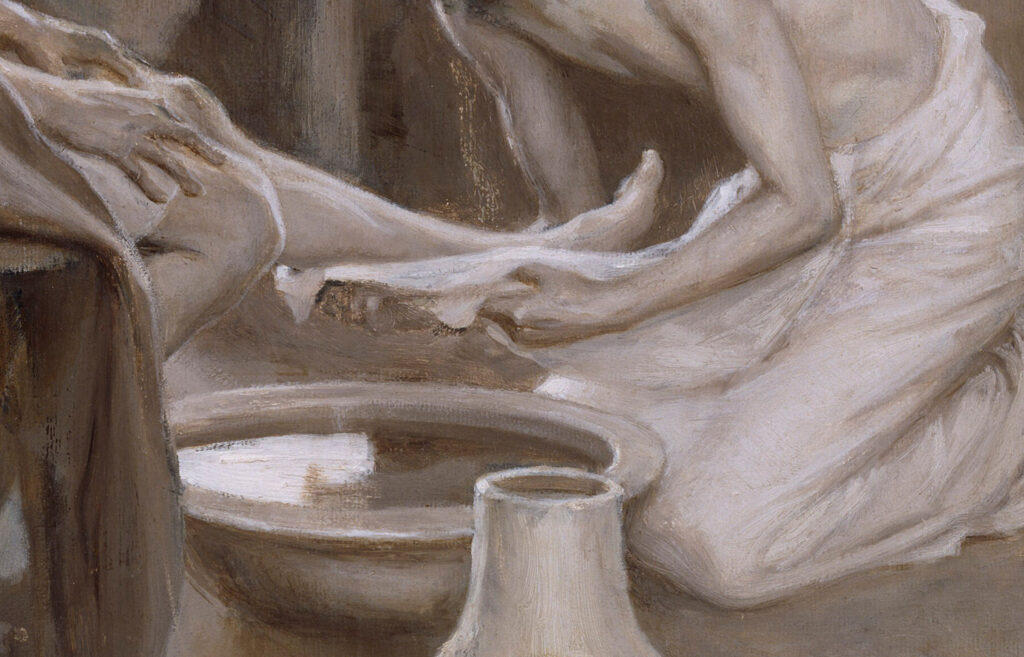
If Thanatism is to grow beyond a single individual or a single experimental community, it will need people who are dedicated to the faith full-time. As such, eventually, there will be those who feel called to make Thanatism more than a personal faith, but also their vocation. Before discussing the various duties this professional class of Thanatists might perform, we must first consider what kind of person Thanatism might need in order to grow and yet maintain its unique character.
In the organizations I’ve built, I’ve trained a number of leaders, and the first thing I tell them is that being a leader is about being a servant. Specifically, I look for people who care less about their own personal wellbeing than they do about the organization itself and the people who compose it. Great leaders aren’t those who can command, but rather those who can recognize obstacles and clear them for their team, enabling their team and the individuals who compose it, to become the best they can be.
As such, the Diakon, or servants of Thanatism, must first be those who have allowed death to fully and utterly destroy their personal immortality projects. They must fully accept their own temporariness and lack of eternal importance, so that they can free that care usually reserved for the self, and give it freely to those they serve. Further, they must be those who have faced death unflinchingly, staring into the void with courage, as it is through this, that they will develop the courage to look unflinchingly at their own failures and the failures of our community.
In so doing, they can develop the habits of acknowledging and changing rather than those of defending and protecting. As such, the Diakon will have to be both great listeners and great observers. It’s the role of every Thanatist to serve as a warning light for the organization, as every person has a unique perspective. We each, therefore, have an obligation to bring up tensions we feel, as these are often warning signs of deeper ills. It is then the job of the Diakon, rather than to dismiss what may seem like minor issues, to fully acknowledge them and work to uncover what they mean for the organization as a whole.
Beyond that, the Diakon will inevitably play the role of counselors and advisors to the local community. So often, we as humans, get lost in ourselves and our relationships. When the “you” that’s trying to figure out what’s wrong is the same you that’s mired in the problem, the solution, even if it’s right in front of us, can be impossible to see. With the help, however, of a disinterested third party, what seemed impossible can quickly become a reality. Although Thanatism gives some insight into our human predicament and that insight will grow as our community grows, as counselors, the Diakon should also be well studied in other traditions of the mind, including other faiths, psychology, and the cognitive sciences. In other words, they should make it their mission to become experts on what it means to be a human.
Finally, the Diakon must be educators. No doubt, should Thanatism ever become a faith that’s widely practiced, there will be much local resistance to its practitioners. Religious practices, no matter how benign, when first encountered, are almost always viewed with suspicion. Thanatism, given its moniker alone, will no doubt be the subject of much misunderstanding. As such, the Diakon will need to have great patience and understanding as they both explain and evolve the faith.
Writing this post feels weird. Perhaps it’s the introduction of yet another greek term. Perhaps it’s because of the absurdity of writing about the leaders of a faith yet born. As I consider this though, ultimately I think it’s because the above makes Thanatism sound so ordinary. I’m much happier waxing about lofty ideals than about the practicalities of organizational development.
The fact is, however, it is exactly through these messy details that Thanatism will become real both to ourselves and in society. There are millions of people in the world who are lost in their fleeing. There are millions of people in the world who are trapped in a room of their own creation. There are also millions of people who possess the servant’s heart, whose greatest calling would be as leaders, counselors, and teachers of something real, who right now are waking up every morning to do something this society doesn’t really need.
In short, when I consider the reality of Thanatism, it makes me tired and perhaps a bit afraid. Could we actually make this faith real? At the same time, however, when I consider what we’ve accepted as our reality today, when I know the cleansing power of accepting our mortality, and when I consider all those who could serve this world so much more effectively if there was only something they could believe in, I ask myself, why not? Writing of leaders for a yet to be realized faith may be absurd, but it’s no more absurd than living this life that’s been handed to us.
Perhaps you’re one of the people we seek. Perhaps you’re a leader looking for a cause. Perhaps you’re a servant looking for a purpose to serve. Perhaps you’re beginning to feel the personal change that Thanatism promises and you want to share it. If so, I say to you, share. If so, I say to you, serve. And if so, I say to you, lead. And if you’d like to find the support of other leaders such as yourself, I encourage you to reach out to us at thanatism.org.
